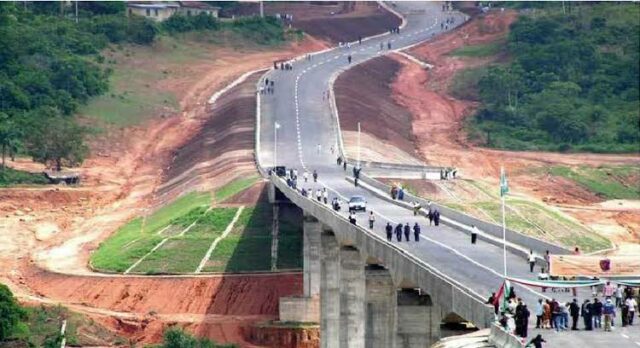In the realm of imaginative possibilities, century skipping presents a captivating avenue for exploring Nigeria’s social and infrastructure development. Through the lens of time travel, one can unravel a tale of the past, present, and future, examining the milestones and challenges faced by the nation. As time travelers venture through different eras of Nigerian history, we gain a unique perspective on the societal fabric and infrastructure advancements. The observations shed light on the progress made and illuminate missed opportunities for development. The stark disparities between centuries become evident, urging people to reflect on the factors that shape a nation’s trajectory. Time travel also serves as a powerful tool for assessing past development efforts. By traversing different epochs, we analyze the societal and infrastructure advancements, allowing for a deeper understanding of the choices and endeavors that propelled progress or hindered growth.
On the other hand, social and infrastructure development are critical aspects of a country’s progress and well-being. Social development refers to the improvement and well-being of individuals and communities, ensuring access to basic services such as healthcare, education, and social welfare programs. It encompasses efforts to reduce poverty, inequality, and promote social justice.
Infrastructure development focuses on the creation and maintenance of physical structures and facilities that support economic activities and enhance the quality of life. This includes transportation systems, utilities (such as water and electricity), communication networks, housing, and public spaces.
Both social and infrastructure development are interconnected and mutually reinforcing. Adequate infrastructure facilities provide a solid foundation for social development by enabling access to essential services and opportunities, improving living standards, and connecting communities. For example, a well-developed transportation system facilitates access to education, healthcare, and job opportunities, while reliable electricity supply supports economic activities and enhances the quality of life.
Similarly, social development initiatives, such as education and healthcare investments, contribute to human capital development, fostering economic growth, and improving overall societal well-being. Investing in social programs and services can help reduce poverty, promote inclusivity, and enhance social cohesion.
Overall, social and infrastructure development are vital components of a progressive society, enabling individuals, communities, and nations to thrive and achieve their full potential. Social investment or critical infrastructure is very important for a healthy nation.
Some nations of the world, especially America and European countries, have made huge investments in their social and infrastructure development, most of which we see today have far been achieved in the 17th and 18th centuries. Development in education, healthcare facilities, critical and basic infrastructure development has been achieved even before they began a quest for colonization.
Nigeria, located in West Africa, boasts the highest concentration of Black individuals globally and is considered a source of pride for the African continent. However, despite its abundant mineral and material resources, some citizens harbor doubts about the country’s ability to reach its full potential. The nation’s focus remains on achieving social and infrastructure development, irrespective of financial constraints.
Development is not a short-term process, as progress often unfolds over decades or even centuries. Developed nations have historically invested in human capital development, producing skilled professionals such as engineers, doctors, and administrators who contribute to infrastructure development and societal advancement. Universities like the University of Pennsylvania, Princeton University, the University of St Andrews, and the University of Pittsburgh have long histories of academic excellence, predating many institutions in Nigeria. These are just a few examples, but there are many more universities and educational institutions that were established in the 18th century around the world. They precede most African nations. These institutions have graduated people who are effecting active development across the board.
Education plays a vital role in driving development and acting as a catalyst for growth. Nigeria’s formal education system commenced post-independence in 1960 during the 20th century. Contrasting this timeline with renowned institutions like the University of Pennsylvania, which was already producing engineers in the 18th century, illustrates the educational disparities faced by many Nigerians who were engaged in agricultural activities under colonial rule.
Significant progress began in Nigeria following its independence, paving the way for advancements in social and basic infrastructure development in the country.
Substantial progress has been achieved during this timeframe in Nigeria. The country has successfully generated electricity, constructed major sea bridges, established seaports, expanded rail lines, improved healthcare facilities throughout the nation, and enhanced the literacy rate.
Many Nigerians aspire to rapid transformation akin to European and American nations, often overlooking the centuries these countries took to cultivate skilled administrators and engineers who played significant roles in their development.
While progress has been made due to the administrative insight that established the social framework, concerns remain regarding the technical expertise and self-sufficient execution of infrastructure projects. Continuous enhancement of human capital is imperative in addressing these challenges.
Development is an ongoing process that requires time and concerted effort. Nigeria has laid a solid foundation for progress, but it necessitates collective awareness that there is still much ground to cover before realizing our aspirations. Avoiding shortcuts in development is crucial, emphasizing the need to prioritize education for the enhancement of human and natural resources, which are fundamental to achieving meaningful social and infrastructure advancements.
Daramola Taiwo Olarewaju OBA_OMO (Reformist) wrote from Lagos, Nigeria.









